Iranian woman dies after hijab gets caught in escalator in Tehran
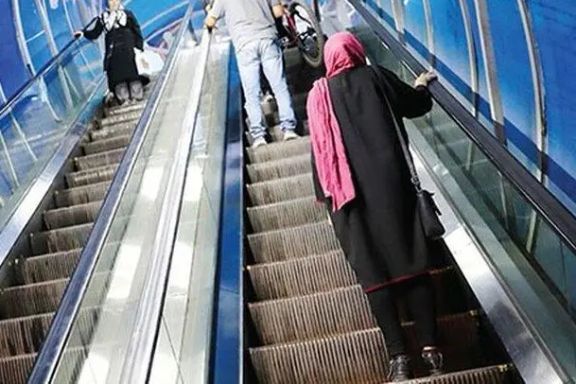
A woman in Tehran died after her veil became entangled in an escalator, marking the latest fatal accident linked to country's mandatory hijab laws.

A woman in Tehran died after her veil became entangled in an escalator, marking the latest fatal accident linked to country's mandatory hijab laws.
The incident took place in eastern Tehran's Damavand Street last Thursday, according to a report by Tehran-based Didban News website.
Although the report referenced other incidents involving malfunctioning and poorly maintained escalators, it noted that the direct cause of this woman's death was her hijab getting caught.
The case is not the first time Iran’s compulsory hijab rules have been linked to fatal accidents involving women.
On November 7, 2021, Iranian media reported that 21-year-old Marzieh Taherian died at a spinning workshop in Semnan, northern Iran, after her headscarf became caught in a machine, pulling her head inside.
On June 5, 2023, a 26-year-old female worker at a plastic injection molding workshop in the northeastern Iranian city of Neyshabur, lost her life when her veil became entangled in a machine, dragging her into it.
The incidents highlight the potential safety risks associated with mandatory hijab in workplaces and public spaces.
On Monday, UN rights chief Volker Turk urged Iran to permanently repeal its hijab laws and end along with all other laws and practices that discriminate against women and girls.
However, despite multiple fatalities in recent years, and repeated calls from rights groups and UN officials, Iranian authorities continue to enforce mandatory hijab laws on women and girls.
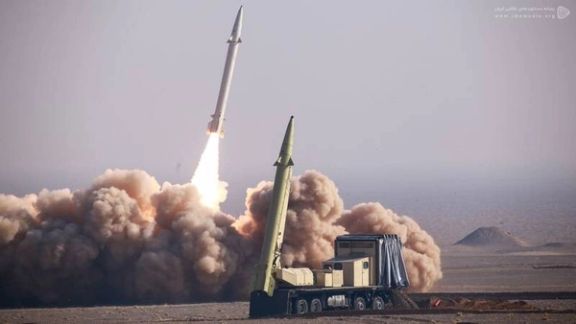
Israel's Defense Minister Israel Katz said Iran remains its greatest threat following talks with US Secretary of Defense Pete Hegseth.
"The Minister of Defense and the Secretary of Defense agreed that Iran is the main threat to the region, and that close cooperation between Israel and the United States should continue with the aim of preventing it from obtaining nuclear weapons," a statement from Katz's office said.
Katz thanked Hassett for the support of President Donald Trump and the administration to accelerate the delivery of weapons and security equipment to Israel.
On Saturday, US Secretary of State Marco Rubio released a statement to say that he has signed a declaration to use emergency authorities to expedite the delivery of approximately $4 billion in military assistance to Israel.
"The decision to reverse the Biden Administration’s partial arms embargo, which wrongly withheld a number of weapons and ammunition from Israel, is yet another sign that Israel has no greater ally in the White House than President Trump," he said.
Since taking office, the Trump Administration has approved nearly $12 billion in major foreign military sales to Israel.
"This important decision coincides with President Trump’s repeal of a Biden-era memorandum which had imposed baseless and politicized conditions on military assistance to Israel at a time when our close ally was fighting a war of survival on multiple fronts against Iran and terror proxies," he said.
Last year, Iran launched two aerial strikes on Israel amid attacks from its military allies around the region as the two enemies' shadow war came to the fore, with Israel retaliating with strikes deep into Iran.
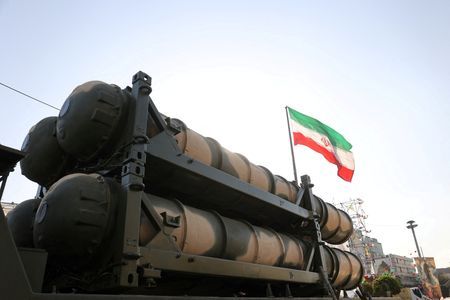
Several senior Russian missile specialists traveled to Iran over the past year as Tehran and Moscow expanded their defense cooperation, Reuters reported on Tuesday, citing a review of travel records and employment data.
Seven weapons experts flew from Moscow to Tehran on April 24 and September 17 last year, according to the report.
Their trips occurred amid heightened tensions between Iran and Israel, as both countries exchanged military strikes in the same months.
The report, citing a senior Iranian defense ministry official, said Russian missile experts had visited multiple Iranian missile production facilities last year, including two underground sites. Some of these visits took place in September, the official said, without specifying locations.
A Western defense official cited by Reuters said that Russian missile specialists visited an Iranian missile base west of the port of Amirabad on Iran’s Caspian Sea coast in September.
According to Reuters, all seven Russian experts have military backgrounds.
The report said that a review of Russian databases showed that two hold the rank of colonel, two are lieutenant-colonel, and others specialize in air-defense missile systems, artillery, rocketry, advanced weapons development, and missile testing.
Their employment records range from 2021 to 2024, but it is unclear whether they still hold these positions, Reuters said.
The report said Hooshyaran-e Vatan, a group of activist hackers opposed to the Iranian government, provided the flight booking information to Reuters. The hackers claimed the seven Russians traveled with VIP status.
Reuters said it corroborated this information with a Russian passenger manifest from September, obtained from a source with access to Russian state databases. However, Reuters said it was unable to verify the manifest for the April flight.
Reuters identified two of the Russians booked on the April flight as Denis Kalko, 48, and Vadim Malov, 46. Tax records showed that Kalko previously worked at the defense ministry’s Academy for Military Anti-Aircraft Defense, while Malov worked for a military unit that trains anti-aircraft missile forces, according to 2024 records.
It also identified three other Russians on the April flight: Andrei Gusev, 45, a lieutenant-colonel who works as deputy head of the faculty of General Purpose Rockets and Artillery Munitions at the defense ministry’s Penza Artillery Engineering Institute; Alexander Antonov, 43, who has worked at the Main Rocket and Artillery Directorate; and Marat Khusainov, 54, a colonel linked to the Kapustin Yar missile-testing range.
According to Reuters, Sergei Yurchenko, 46, was one of two passengers on the September flight. Mobile phone records showed he worked at the Rocket and Artillery Directorate. His passport number had the prefix “22,” which is not used for private citizens or diplomats, Reuters said, citing Russian government regulations.
Reuters identified the other passenger as Oleg Fedosov, 46, who, according to Russian records, is linked to the Directorate of Advanced Inter-Service Research and Special Projects, a defense ministry branch developing future weapons systems.
Fedosov had previously flown from Tehran to Moscow in October 2023, using his official state passport, Russian border crossing records showed.
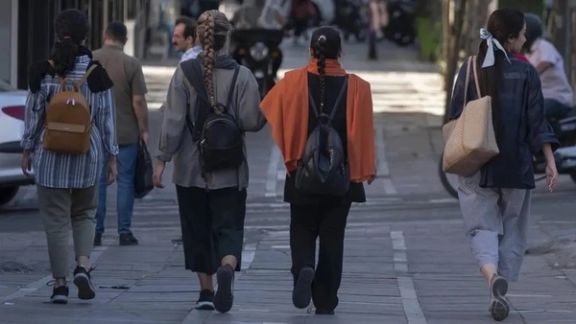
UN High Commissioner for Human Rights Volker Turk urged Iran to permanently repeal its hijab law and end its use of the death penalty, speaking at the 58th session of the Human Rights Council on Monday.
"I call again on the authorities to repeal the (hijab) law fully and permanently, along with all other laws and practices that discriminate against women and girls," Turk said.
In December, Iran postponed the implementation of the controversial hijab law that imposes severe penalties on women and girls who defy veiling requirements, following huge backlash from the public and the international community.
Despite this, Iranian authorities continue to crack down on women who appear unveiled in public.
He also called for the release of all detained human rights defenders and an end to arbitrary arrests and imprisonment. Expressing concern over a sharp rise in executions, Turk noted that more than 900 cases were reported last year.
"I have urged the Iranian authorities to place an immediate moratorium on the use of the death penalty," he added.
At least 54 political prisoners are currently on death row in Iran, according US-based rights group Human Rights Activists News Agency (HRANA), with 19 having their convictions upheld by higher courts of the Islamic Republic
In 2024, a total of 31 women were executed in Iran, the highest annual number in 17 years.
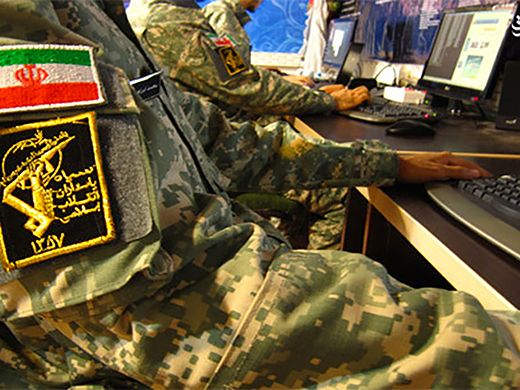
A vast cyberattack mostly emanating from Iran was launched days after US President Trump unveiled his "maximum pressure" campaign of sanctions on the country, two internet security watchdogs cited by news site Cybersecurity Dive reported on Monday.
30,000 hacked security cameras and network video recorders have been deployed to carry out direct denial of service (DDoS) attacks on gaming platforms and telecom providers, the publication cited security researchers Nokia Deepfield and GreyNoise as saying.
Over 60% of the more than 1,000 observed IP addresses linked to the attack have been traced to Iran, GreyNoise said, noting that the attack came days after Trump reimposed the stepped-up sanctions on Iran from his first term.
The watchdogs did not ascribe any responsibility for the operation to Tehran.
“Its size is exceptional among non-state actor botnets, making it one of the largest known DDoS botnet campaigns observed since the invasion of Ukraine in February 2022,” security researcher Jerome Meyer at Nokia Deepfield wrote.
Meyer described the attack, dubbed Eleven11bot, as “one of the largest known DDoS botnet campaigns observed since the invasion of Ukraine in February 2022.”
US law enforcement officials accused Iran of seeking to meddle in the presidential election last year and have accused Iran's Islamic Revolutionary Guard Corps - an elite paramilitary body - of being behind Tehran's cyber operations.
Iranian operatives reportedly hacked the emails of Roger Stone, a longtime Trump adviser, and attempted to infiltrate the Kamala Harris campaign.
Meta alleged it had detected similar efforts on its WhatsApp messaging platform targeting both political campaigns.
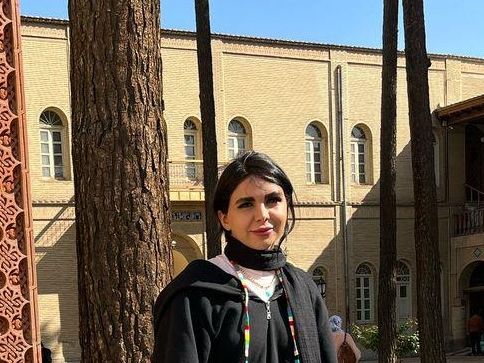
Fearing for her life in Iran after converting from Islam to Christianity, Artemis Ghasemzadeh, 27, arrived at the United States southern border hoping for asylum.
Instead, she was flown handcuffed and shackled by the US military to Panama, where she has been sent to a remote camp in the midst of a sprawling jungle.
US President Donald Trump was elected in part to clamp down on illegal immigration and has stepped up deportations of people his administration has called "illegal alien criminals".
Artemis protests, telling Iran International in a series of voice text messages that she only seeks safety from possible execution at the hands of Iran's Islamic theocrats.
“The message that I have for the world is that we are not criminals,” she said, using a phone shared among the migrant detainees.
“We are just refugees who left home to seek a better future. I am just looking for a good future full of peace and safety.”
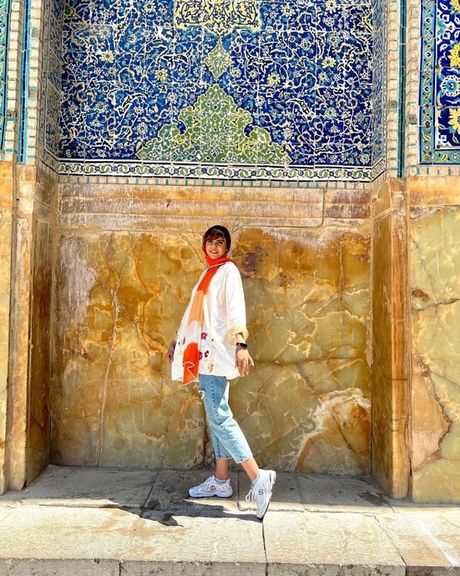
After members of her bible group in her hometown of Isfahan in central Iran were arrested, she felt she could be next.
Iranian law forbids conversion from Islam to Christianity - a crime punishable by death.
Her spiritual awakening could cost her life, she feared. It was time to flee.
Her first port of call was Dubai to apply for a work visa to Mexico. Upon arrival in the Mexican capital Artemis traveled to Tijuana where she climbed the border wall to the United States, where she says she felt a sense of relief for the first time in years.
It was not to last.
Darien gap
Artemis, who is one of at least 12 Iranian nationals deported together, was removed by US authorities from a migrant camp in San Diego run by the US Immigration and Customs Enforcement (ICE) and told their flight was bound to Texas.
Reading local signs upon her arrival, she realized with dread that she was in Panama.
Panamanian authorities first took the asylum seekers to a hotel in the city, surrounded by armed guards.
With her red lipstick in hand, Artemis wrote on the window of the hotel, “help us.” The photo was captured by the New York Times and went viral online, becoming an emblem of the migrants' plight under the Trump administration.
Artemis started a social media account to document her experience before going silent as she and others were taken from the hotel to the San Vicente Migration Centre near the Darien gap jungle between Panama and Colombia.
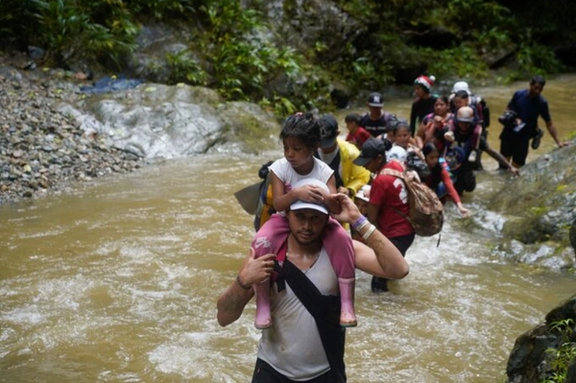
The area is rife armed guerillas, drug traffickers, vipers and diseases like dengue fever.
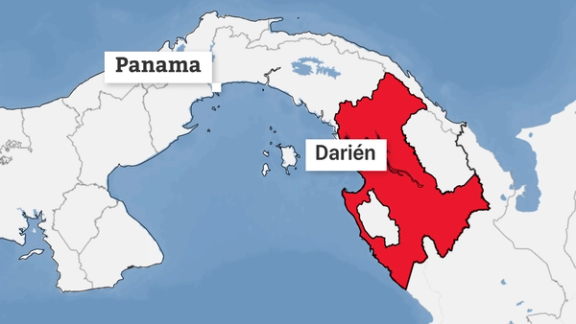
Authorities have blocked journalists and aid groups from entering. When they arrived at the site, Artemis’ phone was confiscated, forcing the migrants to communicate with the outside world via a single shared phone hidden from authorities.
“The conditions in the camp are terrible. The sanitary conditions are zero, even worse,” said Artemis.
Artemis told Iran International many of the asylum seekers felt unsafe inside the camp, saying criminals and gangsters were being held in the same building. They decided it was better to sleep on a bench in the open air surrounded by the jungle.
“On the first day, they only gave us one bottle of mineral water. We must use the water in the camp from the faucet, which is full of dirt and chalk.”
Artemis said they subsist on stale bread: “The food is terrible. It’s only helping us stay alive. The food just helps us stay full and not die."
Who are the deportees?
The Iranians are among the first group of 119 people flown to Panama on February 12. Another flight came the next day amounting to a total of 360 migrants removed from the US to Panama.
The deportations are part of an agreement between the United States and Panama. It follows a visit by US Secretary of State Marco Rubio to Panama as tensions festered over President Trump’s threats to seize the Panama Canal.
According to Panamanian law, detention beyond 24 hours without a court order is illegal, but it remains unclear how long they will remain at the site.
Authorities say migrants who do not wish to return to their country of origin, they would have to choose a third country.
Ali Herischi, the Washington DC based lawyer representing Artemis and 11 other Iranian migrants, said his clients were not provided by the United States with a legally-mandated "credible fear interview", which is meant to determine if the migrant faces a plausible threat if they return to their home country.
Herischi filed a complaint this week at the Inter-American Court of Human rights against Panama and the United States to prevent this from happening the future and to secure legal rights in Panama for his clients.
Artemis, meanwhile, pleads to live her life and cherish her faith in safety.
“Everyone, including myself, dreams of freedom and peace, which is the right of every human being anywhere in the world. But now I’m in a situation full of pain."